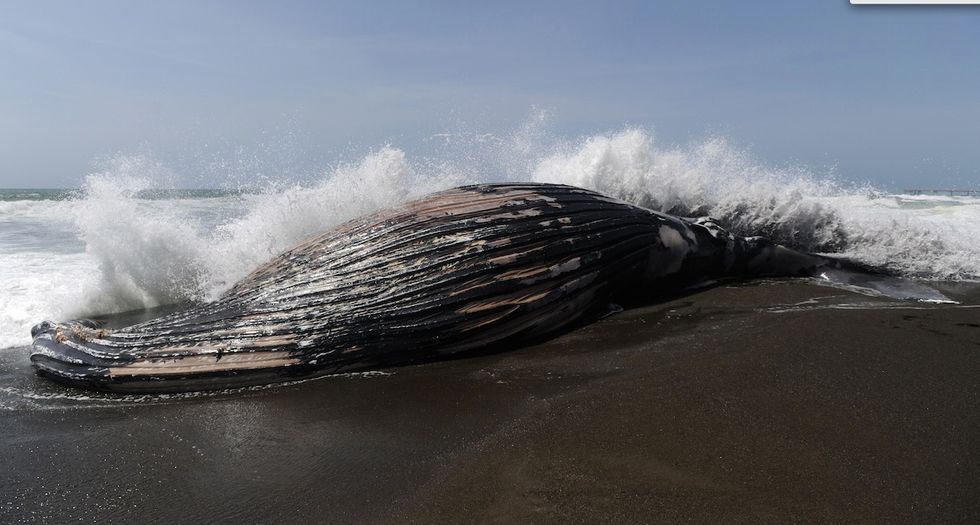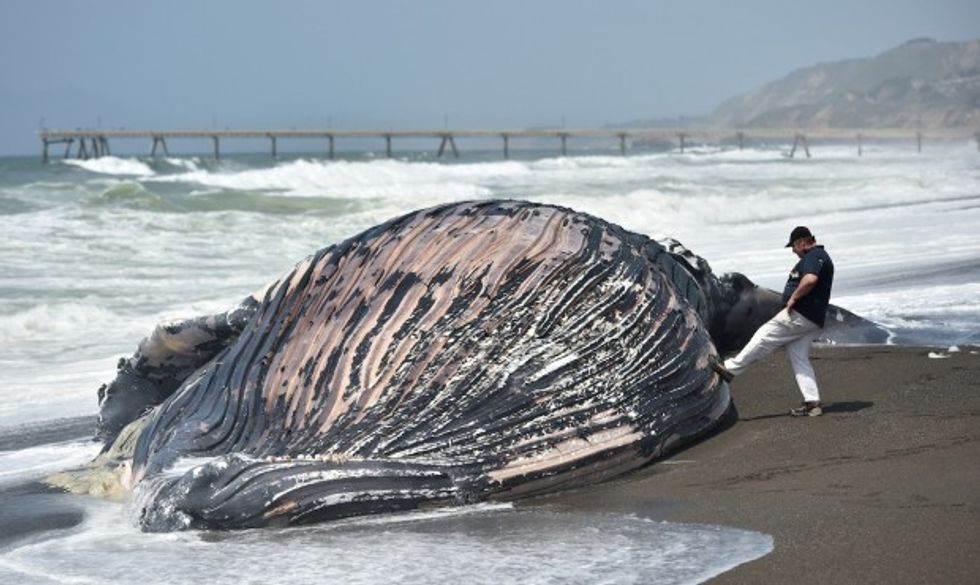
© 2025 Blaze Media LLC. All rights reserved.
Why Have Five Dead Whales in the Last Three Weeks Washed Ashore on California Beaches?
May 06, 2015
"Animals die."
It started with one whale washing up on a California beach last month. But several others followed, and marine experts explained it's probably not that unusual.
KPIX-TV reported that this latest sighting made by the U.S. Coast Guard was of a young female humpback whale in Sharp Park in Pacifica. The news station reported that the first dead whale was a male sperm whale on April 14 at Mori Point, which is also in Pacifica. The cause of death for this whale, according to San Francisco Bay News, could not be determined.

A few days later, a killer whale was beached near Fort Bragg, and on April 24 two gray whales were dead in Santa Cruz County, KPIX reported. One of these latter whales, researchers think, was killed in an orca attack based on evidence seen on the carcass.
Watch this report about the sperm whale in Pacifica, which is one of the more rare whales to find washed up on shore:
Bay City News reported Marine Mammal Center research biologist Lauren Rust said that whale strandings are more common in the spring and fall, coinciding with migration and caving seasons.
"We’re hopeful that conditions on the beach improve, allowing us to conduct a necropsy on this animal," she said of the most recent humpback whale carcass, "as every stranding represents an opportunity for us to learn more about this species and our ocean environment."
Sue Pemberton with the California Academy of Sciences told KNTV-TV that she doesn't think anything in the ocean or an epidemic of sorts is at play in these cases.
"I think it's a coincidence," she told the news station. "They are two different species and age classes. There are pretty strong onshore winds at this beach, and it lends itself to being a repository for dead marine mammals and garbage. I'm not surprised. Animals die."
Watch KNTV's report:
Want to leave a tip?
We answer to you. Help keep our content free of advertisers and big tech censorship by leaving a tip today.
Want to join the conversation?
Already a subscriber?
more stories
Sign up for the Blaze newsletter
By signing up, you agree to our Privacy Policy and Terms of Use, and agree to receive content that may sometimes include advertisements. You may opt out at any time.
Related Content
© 2025 Blaze Media LLC. All rights reserved.
Get the stories that matter most delivered directly to your inbox.
By signing up, you agree to our Privacy Policy and Terms of Use, and agree to receive content that may sometimes include advertisements. You may opt out at any time.






